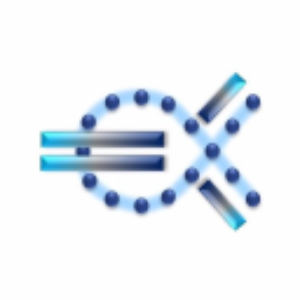Actinium Announces Enrollment of First Patient in the Iomab-ACT Commercial CAR-T Trial at the University of Texas Southwestern Medical Center
Rhea-AI Summary
Positive
- Previous trial showed 0/4 patients developed ICANS and minimal CRS, demonstrating strong safety profile
- Targeting large market opportunity with CAR-T therapy sales projected to reach $12 billion by 2030
- Potential to expand addressable market to 150,000 patients annually
- Demonstrated successful lymphodepletion and CAR T-cell persistence up to 8 weeks
- Technology shows selective targeting of immune cells while sparing bone marrow stem cells
Negative
- Initial clinical data not available until second half of 2025
- Previous trial had very small sample size (only 4 patients)
- Faces competition from existing conditioning methods and other approaches in development
News Market Reaction 1 Alert
On the day this news was published, ATNM declined 8.00%, reflecting a notable negative market reaction.
Data tracked by StockTitan Argus on the day of publication.
- Initial clinical data expected in the second half of 2025 from this first-of-its-kind trial to administer a targeted radiotherapy conditioning agent with a commercial CAR-T therapy
- Iomab-ACT supported by results of NIH funded trial with MSK showing effective lymphodepletion of targeted immune cells resulting in negligible rates of CAR-T toxicities ICANS and CRS and CAR T-cell persistence with a novel CD19 CAR-T therapy
- Iomab-ACT has the potential to increase the addressable market for CAR-T therapies, which generated
Dr. Farrukh Awan, Professor of Medicine, Division of Hematology Oncology at UTSW said, "We are thrilled to initiate patient enrollment to study Iomab-ACT targeted radiotherapy conditioning with a commercial CAR-T therapy. Iomab-ACT is supported by compelling preclinical and clinical data, and we believe it has immense potential to eliminate the need for chemotherapy-based conditioning, which is a major barrier for many patients seeking CAR-T treatment. Despite the positive impact CAR-T therapy has had on patient outcomes, there is still significant room for improvement. We are optimistic that Iomab-ACT can transform CAR-T therapy conditioning if this trial demonstrates it has the ability to increase patients access and reduce the rates and severity of ICANS and CRS and also potentially improve patient outcomes. We are excited to begin treating patients with Iomab-ACT and eager to present our preliminary findings later this year."
Iomab-ACT targets CD45, a cell surface marker expressed on immune cells relevant to CAR-T therapy including lymphocytes and is the only clinical stage conditioning agent targeting CD45. Preclinical data demonstrated that Iomab-ACT can selectively target immune cells implicated in CAR-T toxicities, while sparing bone marrow stem cells, red blood cells and platelets. Preclinical and clinical data also showed that Iomab-ACT produces transient lymphodepletion that aligns with the CAR-T treatment process. This data supported the first clinical trial of Iomab-ACT with a novel CD19 CAR-T therapy in collaboration with Memorial Sloan Kettering Cancer Center (MSK) in patients heavily pretreated with relapsed and refractory B-cell Acute Lymphoblastic Leukemia (B-ALL) or Diffuse Large B-cell Lymphoma (DLBCL). In this study, no patients (0/4) developed ICANS of any grade, and minimal CRS. Iomab-ACT also demonstrated transient depletion of peripheral blood lymphocytes and monocytes, persistence of CAR T-cells up to 8 weeks and minimal non-hematologic toxicities. These positive findings supported the continued advancement of Iomab-ACT and the initiation of the commercial CAR-T trial at UTSW.
Sandesh Seth, Actinium's Chairman and CEO, stated, "This is a pivotal moment for our Iomab-ACT CD45 targeted radiotherapy conditioning program. Iomab-ACT is a highly differentiated conditioning agent that has produced promising initial clinical results where multiple targeted conditioning approaches including monoclonal antibodies and antibody drug conjugates directed against a variety of targets have not achieved clinical success to date. Based on the promising initial outcomes from the pilot study of Iomab-ACT with a novel CD19 CAR-T, we are incredibly excited by the potential of this commercial CAR-T trial and future development path. With initial clinical data expected beginning in the second half of this year, we are making strong progress to achieving our goal of establishing Iomab-ACT as a universal targeted conditioning regimen for CAR-T and other cellular therapies."
Targeted Radiotherapy CAR-T Conditioning Opportunity
A multi-billion-dollar market opportunity exists for better conditioning in other areas of cellular therapy, such as CAR-T. Currently, there are seven CAR T-cell therapies targeting CD19 for lymphoma and leukemia and BCMA for multiple myeloma that are approved by the FDA with total sales of over
About Actinium Pharmaceuticals, Inc.
Actinium is a pioneer in the development of targeted radiotherapies intended to meaningfully improve patient outcomes. Actinium is advancing its lead product candidate Actimab-A, a CD33 targeting therapeutic, as potential backbone therapy in acute myeloid leukemia (AML) and other myeloid malignancies leveraging the mutation agnostic alpha-emitter radioisotope payload Actinium-225 (Ac-225). Actimab-A has demonstrated potential activity in relapsed and refractory acute myeloid leukemia (r/r AML) patients in combination with the chemotherapy CLAG-M including high rates of Complete Remissions (CR) and measurable residual disease (MRD) negativity leading to improved survival outcomes and is being advanced to a pivotal Phase 2/3 trial. In addition, Actinium is engaged with the National Cancer Institute (NCI) under the Cooperative Research and Development Agreement (CRADA) for development of Actimab-A in AML and other myeloid malignancies. The first clinical trial under the CRADA will evaluate the triplet combination comprised of Actimab-A, Venetoclax (Abbvie/Roche) an oral Bcl-2 inhibitor and ASTX-727 (Taiho Oncology, an Otsuka holdings company) a novel oral hypomethylating agent (HMA) in frontline acute myeloid leukemia (AML) patients. Additionally, Actinium is developing Actimab-A as a potential pan tumor therapy in combination with PD-1 checkpoint inhibitors including KEYTRUDA® and OPDIVO® by depleting myeloid derived suppressor cells (MDSCs), which represents a potential multi-billion-dollar addressable market. ATNM-400 is Actinium's novel non-PSMA targeting Ac-225 radiotherapy for prostate cancer, which is supported by preclinical data demonstrating higher efficacy than Pluvicto (PSMA-617-Lutetium-177) and potent efficacy in Pluvicto resistant prostate cancer models. Iomab-ACT, Actinium's next generation conditioning candidate, is being developed with the goal of improving patient access and outcomes for potentially curative cell and gene therapies. Iomab-B is an induction and conditioning agent prior to bone marrow transplant in patients with r/r AML, which Actinium is seeking a potential strategic partner for the
For more information, please visit: https://www.actiniumpharma.com/
Forward-Looking Statements
This press release may contain projections or other "forward-looking statements" within the meaning of the "safe-harbor" provisions of the private securities litigation reform act of 1995 regarding future events or the future financial performance of the Company which the Company undertakes no obligation to update. These statements are based on management's current expectations and are subject to risks and uncertainties that may cause actual results to differ materially from the anticipated or estimated future results, including the risks and uncertainties associated with preliminary study results varying from final results, estimates of potential markets for drugs under development, clinical trials, actions by the FDA and other governmental agencies, regulatory clearances, responses to regulatory matters, the market demand for and acceptance of Actinium's products and services, performance of clinical research organizations and other risks detailed from time to time in Actinium's filings with the Securities and Exchange Commission (the "SEC"), including without limitation its most recent annual report on form 10-K, subsequent quarterly reports on Forms 10-Q and Forms 8-K, each as amended and supplemented from time to time.
Investors:
investorrelations@actiniumpharma.com
![]() View original content to download multimedia:https://www.prnewswire.com/news-releases/actinium-announces-enrollment-of-first-patient-in-the-iomab-act-commercial-car-t-trial-at-the-university-of-texas-southwestern-medical-center-302446586.html
View original content to download multimedia:https://www.prnewswire.com/news-releases/actinium-announces-enrollment-of-first-patient-in-the-iomab-act-commercial-car-t-trial-at-the-university-of-texas-southwestern-medical-center-302446586.html
SOURCE Actinium Pharmaceuticals, Inc.







